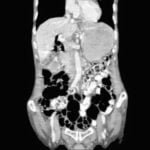When Periods Feel Too Heavy: Understanding Excessive Menstrual Bleeding
Many women experience heavy periods from time to time. But when the flow is so heavy that it disrupts daily life, causes fatigue, or leads to anaemia, doctors call this menorrhagia—excessive menstrual bleeding. It is a common problem, but it should not be ignored, because in many cases it can be treated successfully.
What Counts as Heavy Menstrual Bleeding?
You may have menorrhagia if:
- You need to change pads or tampons every 1–2 hours.
- Your period lasts longer than 7 days.
- You pass large blood clots.
- You feel weak, dizzy, or develop iron-deficiency anaemia.
- Your heavy periods interfere with normal activities.
Common Causes
- Hormonal imbalance: When ovulation is irregular, the uterine lining may become too thick.
- Fibroids or polyps: Non-cancerous growths in the womb can cause heavy bleeding.
- Adenomyosis: The womb lining grows into the muscle wall, leading to painful, heavy periods.
- Bleeding disorders: Rare conditions can make bleeding harder to control.
- Thyroid problems or certain medications: Blood thinners and hormonal drugs may contribute.
- Cancer (rare): Womb or cervical cancer may cause abnormal bleeding.

Managing and Preventing Heavy Periods
Not all causes can be prevented, but several measures can help reduce the impact:
- Track your cycle: Keep a diary of flow, duration, and symptoms.
- Maintain a healthy weight: Hormonal balance is easier when weight is stable.
- Eat iron-rich foods: Spinach, beans, lentils, and lean red meat help prevent anaemia.
- Stay active: Regular exercise can regulate hormones and reduce stress.
- Medical options: Tablets (such as tranexamic acid, hormonal therapy, or the contraceptive pill) and intrauterine devices (IUDs) can reduce heavy bleeding.
- Surgical options: For fibroids or persistent problems, procedures may be offered.
When to See a Doctor
Seek medical advice if:
- Your bleeding is so heavy it limits your daily life.
- You pass clots larger than a coin.
- Your periods last longer than 7 days regularly.
- You feel faint, weak, or notice signs of anaemia.
- You are over 40 and your pattern of bleeding suddenly changes.
Early treatment can make a big difference, improve quality of life, and prevent complications like anaemia.
Key Message
Heavy periods are common but not something you should “just put up with.” If your bleeding feels excessive, don’t suffer in silence. There are safe and effective treatments available—speak to your doctor and find a solution that works for you.
Quick Tips: Heavy Periods
- Changing pads/tampons every 1–2 hours is too much.
- Periods lasting more than a week should be checked.
- Don’t ignore tiredness or dizziness—these may signal anaemia.
Quick Tips: Self-Care
- Keep a period diary for your doctor.
- Eat iron-rich foods to prevent deficiency.
- Stay active and manage stress.
- Don’t hesitate to ask for help—treatments are available.
Join the mailing list!
Get the latest articles delivered right to your inbox!

